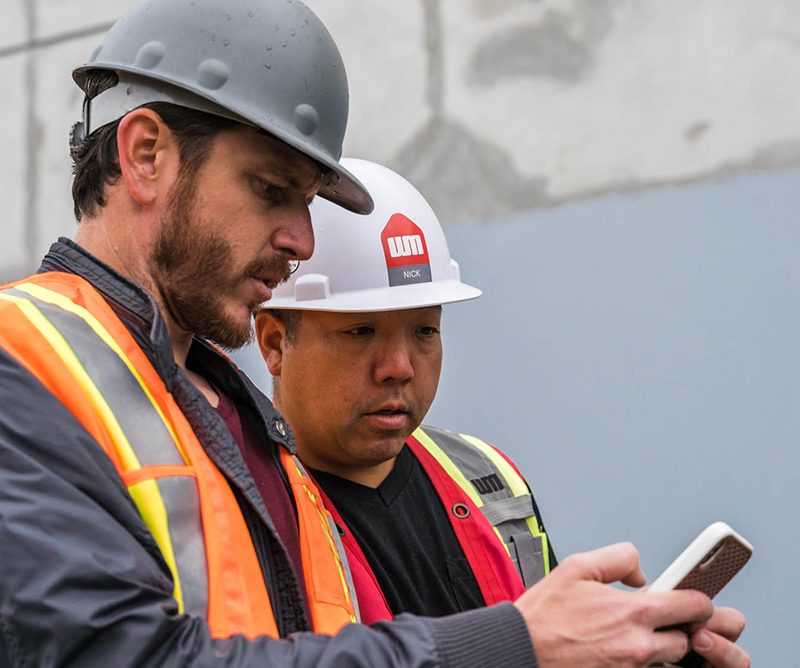Ensuring safety on construction sites is a top priority for contractors, supervisors, and workers. Digital checklists and inspections are transforming the way teams monitor hazards, comply with regulations, and prevent accidents. By using construction site safety app you can streamline processes, reduce paperwork, and increase accountability.
The Importance of On-Site Safety
On-site safety is critical for reducing accidents, protecting workers, and maintaining project efficiency. Construction sites involve numerous hazards, from heavy machinery to working at heights. Regular inspections and structured safety procedures are essential to prevent injuries and costly delays.
What Are Digital Checklists and Inspections?
Digital checklists and inspections are software-driven tools that replace traditional paper forms. They allow site managers and workers to document safety measures, identify hazards, and track compliance in real-time. Construction safety software ensures these records are organized, accessible, and actionable.
6 Benefits of Digital Checklists for Construction Sites
Digital checklists offer several advantages over traditional paper-based methods, making construction sites safer, more efficient, and easier to manage. Here are the key benefits:
1. Reduce Human Error and Overlooked Hazards
Manual safety inspections can be prone to mistakes or omissions. Digital checklists ensure every critical safety step is followed, minimizing the risk of missed hazards and preventing potential accidents on-site.
2. Enable Real-Time Updates and Reporting
Digital checklists allow supervisors and workers to update safety tasks instantly. Real-time reporting ensures that any issues are immediately visible, enabling faster response times and proactive hazard management.
3 Store Historical Safety Data for Audits
All digital checklist entries are stored automatically, creating a comprehensive safety record. This historical data is invaluable during audits, inspections, or incident investigations, providing evidence of compliance and corrective actions.
4. Improve Communication Among Team Members
Using a construction site safety app, teams can easily share checklist updates, assign tasks, and communicate safety concerns. Improved collaboration ensures everyone on-site is informed and accountable for safety procedures.
5. Facilitate Regulatory Compliance
Digital checklists help organizations adhere to local and federal safety regulations. Automated reminders, standardized forms, and detailed records simplify compliance management and reduce the risk of fines or violations.
6. Streamline Task Assignment and Tracking
A construction site safety app allows supervisors to assign tasks directly to team members, monitor progress, and receive alerts for incomplete or overdue safety checks. This ensures accountability and keeps safety initiatives on track.
How Digital Inspections Improve Safety
Digital inspections allow for thorough and consistent evaluation of safety protocols. By using a construction safety software solution, managers can standardize inspection procedures, record incidents instantly, and generate actionable reports. This proactive approach minimizes risks and fosters a culture of accountability.
Integrating Digital Tools into Daily Operations
Adopting a construction site safety app requires planning and training. Teams should be familiar with the software interface, reporting procedures, and task assignment features. Integration with other project management tools ensures seamless workflow and reduces redundant paperwork.
Steps to Implement Digital Checklists and Inspections
- Identify key safety areas for inspection
- Select a reliable construction safety software
- Train staff on using the digital checklist and app
- Schedule regular inspections and track results
- Review data to improve safety protocols continuously
By following these steps, construction teams can prevent accidents and ensure compliance efficiently.
Tracking and Analyzing Safety Data
Construction safety software stores all inspection and checklist data in a centralized system. Supervisors can analyze trends, identify recurring hazards, and implement targeted safety measures. Using data-driven insights, teams can reduce risks and maintain regulatory compliance across multiple sites.
Best Practices for Digital Safety Management
- Conduct daily digital safety briefings
- Encourage team members to report hazards immediately
- Maintain up-to-date digital checklists for all work areas
- Review historical data for recurring risks
- Audit digital inspections periodically for accuracy
Adopting these practices ensures that your construction site safety program remains effective and proactive.
Enhancing Worker Accountability
Digital checklists and inspections hold workers and supervisors accountable for safety procedures. Assigning responsibilities through a construction site safety app ensures everyone knows their tasks, while digital records provide evidence of compliance for audits or incident investigations.
Future of Construction Safety
The construction industry is moving toward full digital integration. Construction safety software is evolving with AI and predictive analytics, allowing teams to identify hazards before they become incidents. Adopting these tools now prepares companies for safer and more efficient construction management in the future.
Conclusion
Digital checklists and inspections are essential tools for modern construction safety. They improve hazard identification, ensure compliance, and foster a culture of accountability. By leveraging a construction site safety app or construction safety software, teams can protect workers and maintain project efficiency.
Boost Site Safety with SiteMax
Boost your construction site safety today with SiteMax. Schedule a demo to explore digital checklists and inspections at SiteMax.
Start implementing smart safety solutions now with SiteMax and transform your site safety management effortlessly.
